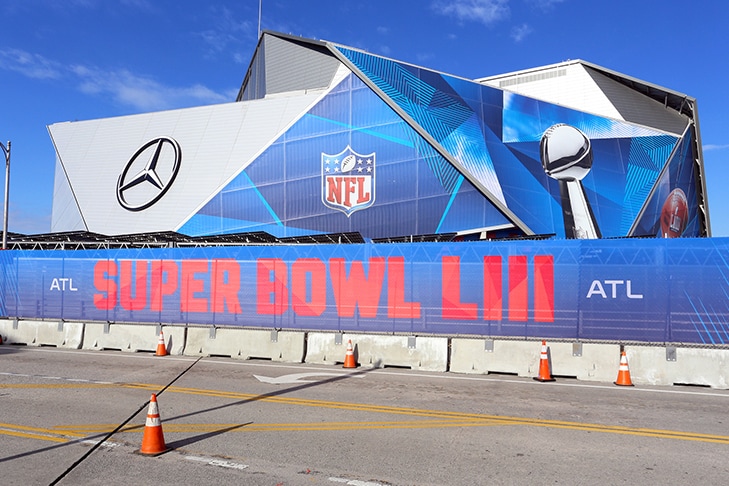PHEP Helps Atlanta Prepare for Super Bowl LIII
On Sunday, February 3, and the week preceding, more than one million people visited Atlanta for the Super Bowl LIII experience – a week of football-themed events leading up to the showdown between the Los Angeles Rams and the New England Patriots.
Every year, PHEP helps the nation prepare for emergencies such as disease outbreaks and terrorist attacks at mass gathering events like the Super Bowl, otherwise known as National Special Security Events.
Much of what goes into getting a city ready to host a Super Bowl happens many months prior to the event and out of public view. For almost a year, the PHEP-funded preparedness program in Fulton County developed new and updated National Special Security Event plans, held trainings for large groups, and developed or participated in multiple emergency preparedness exercises.
Immediately leading up to the event, the health department worked with a variety of partners, including Atlanta Fire and Rescue, to establish points of dispensing (PODs) sites and conducted training with volunteers. PODs are used to rapidly dispense life-saving medicines and supplies to the public in an emergency.
Epidemiologists, including a PHEP-funded CDC Career Epidemiology Field Officer (CEFO) stationed at the state health department, tracked reported illnesses and symptoms throughout the week to quickly detect and contain potential outbreaks, and environmental health staff monitored more than 600 food vendors to prevent foodborne outbreaks.
The time and work that was put into the event paid off, as the week came and went without major incident.
Every year, large, planned events such as the Super Bowl highlight the importance of coordinated preparedness work across many partner organizations. CDC field staff, such as the CEFO and a Preparedness Field Assignee, often serve as a crucial liaison between federal, state, and local partners during a response. In this instance, Georgia field staff worked closely with their counterparts in Minnesota to build off of lessons learned during Super Bowl LII to improve this year’s preparedness efforts.

In February 2019, Atlanta hosted Super Bowl LIII, an event which brought more than 1 million people into the city.
The Incident
In February 2019, Atlanta hosted Super Bowl LIII, an event which brought more than one million people into the city.
The Response
To help prepare for an array of public health events, PHEP-funded state and local programs worked for months, conducting trainings, monitoring possible disease outbreaks, and preparing to respond to any potential terrorist event.
The Outcomes
The time and work that was put into the event paid off, as the week came and went without major incident.